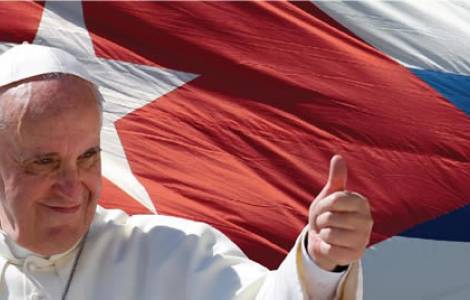
Havana (Agenzia Fides) – "Following the papal visit of Pope Francis" is the title of an editorial published by Palabra Nueva, the Catholic weekly of the archdiocese of Havana. The editorial, a copy of which was sent to Fides, proposes a reflection on the situation on the Island at two levels, international and national.
Regarding the international aspect we read: "After decades of confrontation, cold and hot, Cuba and the United States have re-established relations, and Pope Francis intervened at a crucial moment in the process and making his mark as a Shepherd. The event is of great importance for us, but its consequences go beyond the bilateral possibilities because the process of normalisation of relations between the two countries favours also the normalisation of Cuba’s relations with the rest of the world..."
The weekly of the archdiocese reflects then on expectations at the local level: "One concrete step, once and for all, would be to acknowledge the place of the Church in society and her triple mission: worship, witness and charity. Not only to acknowledge the Church as an institution, but in all her components, from lay Catholics to Bishops, clergy and consecrated life, the life of every church member, because we each have a place and a role in society. Our desire for commitment is convinced but it needs to be accompanied by laws and social structures...”.
The editorial concludes with the following request: “It is wrong to think that the Church must attend only to the things of God within the temple but be isolated from the social sphere, and her social participation accepted only when it suits the politicians. The question is not to determine what is better for the Church or better for politicians, but rather, what is better, suitable and good for society and citizens … a necessary step would certainly be to lift all restrictions on religious institutions enabling them to freely develop their activities. And now, if religion is no longer the opium of peoples, who are those persons who want to preserve a virtual agreement or spread such an artificial drug?”
(CE) (Agenzia Fides, 22/10/2015)